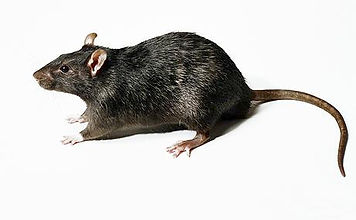
The Plague (Black Death)
The main reasons for the spread of the virus was the poor hygiene and
the massive number of infected rats and mice. The Bubonic plague (Black Death)
was always caught or spread from an infected animal or person. The victims
would often die within two to four days. Unfortunately this was not known during
the Elizabethan periods of history.
Elizabethan Pesthouses were established, a few miles away from the infected
areas, where the victims would be sent. But the spread of the disease still
continued.
The Elizabethan churches looked after the Black Death (Bubonic Plague) victims but very little other help was given and food was rarely distributed. Only the very wealthy would receive the treatment of an Elizabethan Doctor who would have received an education at one of the Universities. There were Elizabethan surgeons, but these had a similar reputation to the barbers and the usual route that most people took was to visit the apothecary, or dispenser of drugs. The ' wise women ' in the Elizabethan community or some members of the Church were really the victims only hope for a medical treatment and cure of the Black Death or the Bubonic Plague.
Any pictures of the people of the Elizabethan era who looked after the plague
victims look very strange and quite frightening. These "Plague Doctors" wore
protective costumes against the disease. They wore long dark robes with pointed
hoods, leather gloves, boots, and masks featuring long beaks shaped like that of
a bird. Straps held the beak in front of the doctor's nose. The mask had two small
nose holes which was used to breathe through and this contained aromatic items.
The beak could hold dried flowers (including roses and carnations), herbs
(including mint), spices, camphor, or a vinegar sponge. The purpose of the mask
was to keep away bad smells, which were thought to be the main cause of the disease.
Doctors believed the herbs would counter the "evil" smells of the plague and
prevent them from becoming infected. The beak doctor costume worn by plague
doctors had a wide-brimmed leather hat to indicate their profession. They used
wooden canes to point out areas needing attention and to examine patients
without touching them. The canes were also used to keep people away, to
remove clothing from plague victims without having to touch them, and to
take a patient's pulse. Locketss of dried blood and ground-up toads were
worn at their waists, It was their custom to cover themselves with vinegar
and chewing a herb called angelica before approaching a victim.
Although this might sound pointless today, these precautions would have
protected the Plague Doctor. The bizarre and gruesome masks would have
acted as protection against getting the disease through breathing the same
air as the victim. Their clothing would have protected them from the bites
of the rat fleas and therefore the Black Death / Bubonic Plague.






